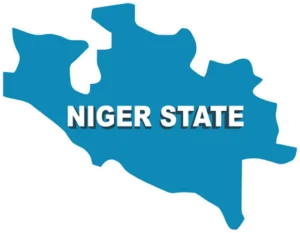Infrastructure deficits: Rejigging project execution patterns for efficiency
That Nigeria is largely challenged with infrastructure deficits accompanied with decaying vicissitudes of existing ones is incontestible. The bank of infrastructures needed to propel appreciable growth in the economy appears to be much irreconcilable to the existing profile of the infrastructure in the Country. The deficits appear to be too deep seated that commercial and productive activities upon which industrialisation can ride on to drive the economy unto a robust strength of virile architecture, are largely constrained. The degree of the prevailing deficits, despite budgetary allocations overtime, have brought into bear the question of why Nigeria’s profile of infrastructure base has been roving within the circle of low ebb despite increasing allocation? One quick response that comes to bear in reaction to the paradox has been the scourge of corruption.
An endemic vulture, the scourge of corruption has been observed not to have spared works and infrastructures in the Country. As it is known, the scourge in its diverse phases at various levels of maladies, has constituted backward strings frustrating upward development. Hence, rather than experiencing higher degree of virility in the Country’s infrastructure base with increasing budgetary allocation, it is a parody that the manifestations of corrupt inclinations have left unsavoury narratives for the Country, with the depth of deficits still frowning at her.
While more projects are been listed for execution with huge funds allocated, the scourge of corruption in various dimensions have seen such projects falling under the ill-fate of misfortune. Hence, while some are victims of abandonment, some were victims of poor standard quality which made their durability of a short life span, and by reason of demands for quick funds for rehabilitation which may not be necessarily available, they suffer dilapidation and untimely decay. The listing of those ill-defined projects which falls within the later category, for rehabilitation or reconstruction by their necessity, do not fall in good fate for the Country’s infrastructure base, as the funds released for their rehabilitation would be unjust being a function of poor execution. Such funds would have largely done well fixing new infrastructures to further fortify the infrastructure base.
Narratives of alleged diversion of funds meant to execute pressing projects have not been in any way alien to the Country. The ugly phenomenon have left huge gap in the deficit profile which is largely lamented. On Sunday, 13th, February, 2022, the alleged diversion of N621billion funds budgeted for the repairs of 21 deplorable and critical federal roads across the Country was another case in point. The Nigeria Union of Petroleum and Natural Gas Workers (NUPENG) in a statement on Sunday by its President and General Secretary, Prince Williams Akporeha and Afolabi Olawale, respectively, threatening to declare a nationwide strike without notice, accused officials of the Ministry of Works and Housing and some politicians of diverting a sum of N621billion funds budgeted for the repairs of 21 deplorable and critical federal roads across the Country, while the conditions of the roads have worsened and unmotorable nationwide.The Union claimed that officials of the Ministry of Works and Housing are now going around parading pictures of roads done in June and August 2021 to justify payment made from the N621billion approved in October, 2021 for the identified 21 critical 1oads.
NUPENG in its lamentation had recalled the concerns of the National Chairman of Petroleum Tanker Drivers, PTD, on Wednesday, 8th February, 2022 and the President of the Nigeria Association of Road Transport Owners, NARTO, on Thursday, 10th February, 2021, explaining the reasons behind the increasing deterioration of health and safety provisions for PTD members and the rising number of roads and fire accidents involving the Petroleum Trucks across the country. The Union demanded the setting up of a competent monitoring and validation team comprising all those stakeholders, the pre award pictures of the 21 identified roads taken to be compared with pictures of post repairs/reconstruction situation, immediate review of transport freight rates to reflect the operational realities of the petroleum distribution value chain, among others.
The statement reads partly, “In as much as we understand the unfortunate situation the Transporters have found themselves, NUPENG, as a responsible and responsive Trade Union Organization cannot afford to sit idle and watch her able bodied members continued to be wasted away as sacrificial items as well as the wanton destruction of millions of public lives and properties, so as to manage the operational costs by transporters due to inadequate freight rates being paid to them. Many of our members have constantly been lodging complaints of being forced to drive with worn-out tyres and other unsafe vehicular parts thereby putting their safety at high risk. More worrisome is the fact that the conditions of work of these drivers have remained same for more than six years now and the Transporters have been foot-dragging in committing to a revised collective Bargaining Agreement for the conditions of work for the Petroleum Tanker Drivers due to high cost of operations and low freight rates.
“You will all recall that at the end of the quarterly Branch Executive Council meeting of the Petroleum Tanker Drivers, held at PTD House, Emene, Enugu on the 25th of September, 202l, the Union issued a firm and decisive ultimatum on the deplorable state of the federal highways and the painful experiences of our members while carrying out their duties across the Country. The management team of NNPC under Mallam Mele Kyari immediately apprehended the situation then to avert the situation of industrial action of the Union, by calling the leadership of the Union to two separate meetings on the 10th of October, 2O21.in lbadan and 12th October, 2021 in Abuja.
“In attendance at the 12th October were critical Stakeholders such as the FIRS, FRSC, Federal Ministry of Works and Housing, Nigeria Association of Road Transport Owners and NUPENG. These two meetings resulted into signing of communiqué indicating the readiness and willingness of NNPC to finance the rehabilitation of identified 21 critical roads at an estimated sum of N621 Billion through Road Infrastructure Tax Credit Scheme.
“On the basis of this communiqué, the Union suspended the intended industrial action, but we were very clear in our statement, that should the spirit and letter of the agreement not fully implemented with focus on those jointly identified critical roads or attempt is made to divert the funds, the Union will not give further warning to resume the intended actions.
“You will recall the proposal was tabled before the Federal Executive Council and was graciously approved by Federal Executive Council in-session. Unfortunately, our worst fear concerning the struggle is gradually unfolding with information coming out from reliable sources that some elements in the garbs of being State Governments, Officials of Ministry of Works and Housing and desperate Politicians are already dipping their soiled hands into these funds and diverting them to roads already budgeted for and done since last year. The officials of Ministry of Works and Housing are going around showing pictures of roads done in June and August 2021 to justify payment made from the 621 Billion Naira which was approved in October, 2021for the identified 21 critical 1oads.
“We have our facts and figures, and we shall not be cowed into allowing the 621 Billion Naira to go same way others budgeted funds have gone. We demand immediate halt to further release of the fund until that a competent monitoring and validation team comprising all those Stakeholders that signed the Communiqué is formed.The pre award pictures of the 21 identified roads are taken, which will be compared with pictures of post repairs/reconstruction situation. The 621 Billion Naira was approved because of our demand and struggle therefore, we owe our members and the general public the responsibility to ensure that every kobo of the approved fund is accounted for. Taxpayers’ money must be accounted for.
“Immediate review of transport freight rates to reflect the operational realities of the petroleum distribution value chain. For these critical issues, we have the mandate of the National Executive Council (NEC) of the Union to commence immediate mobilization of all our members for resumption of our earlier suspended action. We hereby plead with the general public to please bear with us as our action may resume without further notice and that these issues raised are of and should be of national concerns.An injury to one is an injury to all. We urge every patriotic Nigerians to also rise up and join us in this struggle, this is not a fight for NUPENG alone, it is our collective fight.”
The state of deplorable roads, among other infrastructures, is an eyesore to businesses and commercial operations. This is largely counterproductive to the demands of friendly environment for business to thrive. Mentioning growth for a virile economy with the scourge of corruption running up in phases of diverse reflections amid the huge deficits in infrastructure, is a facade. The lamentation of the devouring scourge of corruption finding expression in various forms on the layers of the processes of project execution, from the presentation of proposals to the approval and release of funds, have been noted to be ridden with corrupt inclinations. The end results have seen the Country wandering within the circle of infrastructure deficits.
It has become of necessity for the oversight bodies of repute including the National Assembly as the legislative arm, and the echelons of the executive, culminating in the Preesidency, to arise to the task of rejigging the operating orientation of the framework of public finance in the Country, particularly with emphasis on the processes informing project execution. The subsisting structure of administration have proven its inefficiency with its susceptibility to the devouring scourge of corruption. The call for reform and decisive actions with stern measures of concerted efforts have become non negotiable, if a change in narrative is preferred.




